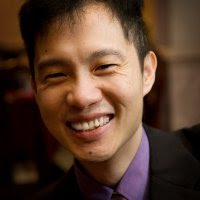Before the days of the centralised official marriage register was invented, marriages are essentially a ceremonial affair. The Chinese wedding tea ceremony being the final ceremony that ties the couple together. So what happens?
There are a hundred and one things the bride and groom and their families will have to do before the ceremony takes place. And a hundred and one things after it's taken place. I will leave these for anther post - I got to keep you watching this blog somehow.
What do you need?
For the tea ceremony, you will need a set of new tea cups and tea pot - Chinese tea cups and tea pot set with lucky symbols or writing on them ideally, but English cups are fine if that's all you could get. It is important the tea set is new.
Formally, you will need a elder lady's assistance to serve the tea, she will ideally have a happy marriage and children of her own, so her "luck" with her marriage rubs off on the new couple.
Chinese tea is served with "red dates" (a dried fruit) in it (this red date is used in some Chinese soups). Sugar is often added to the tea to give the marriage a sweet start, and everyone who drinks it will say "very sweet" to the couple.
Order of service
The order that the tea is served is usually the parents first, then in the order of the closeness of relatives and seniority. Think of the ordering as the "pecking order" in the family tree. So:
- gran parents will be first after the parents
- gran uncles and aunts
- uncles and aunts
- elder siblings
- elder cousins possibly.
You are giving them tea to show them respect and to awknowledge their positions above you in the familyi, so you do not give tea to younger members of the family, unless their position in the family tree is higher, eg say you have an uncle who is younger by age than you, but since he's an uncle, his position is above you and should be given tea. Generally relatives from the father's side of the family goes before the mother's side.
The current norm when giving tea to relatives in the generation above you, ie, parents, gran parents, the couple will kneel down on cushions while the relatives will take a seat in front of them. When giving tea to those in the same generation as yourself, everyone can stay standing up.
How
During the ceremony, the lady assistant will stand beside the couple and hold out a tray of tea for them. The bride and groom will take the cups off the tray one by one and present them to the relatives in front of them.
Whilst historically there are probably strict rules dictating the order the tea is then served to each set of relatives, it isn't usually followed nowadays. Generally, the groom will serve to the male relative first (eg father) then to the female (eg mother), then the bride will do the same. However, this could also in groom to male, bride to male, then groom to female, bride to female.
When the relative receives the tea, they will take a sip and put it down, perhaps saying very sweet because of the sugar or because to say the couples' gesture is very sweet. They will then give the couple some words of congratulations and maybe a gift or two, but most importantly, they MUST give them a red packet to wish them good luck. This can be simply put into the tray where the tea was served, or given to the bride or groom that gave them the tea.
Someone, usually the chief bride's maid, will be appointed to look after the red packets of money. You are advised to prepare a zipable bag to put them into, a vanity case is often used.
That in essence is the Chinese tea ceremony.
Other topics I intend to write about includes the Chinese wedding games that are played on the groom and groomsmen, as well as games played on the bride and groom at the wedding banquet.
Perhaps in a later post, I will also talk about the nine course Chinese Wedding Banquet.

No comments:
Post a Comment